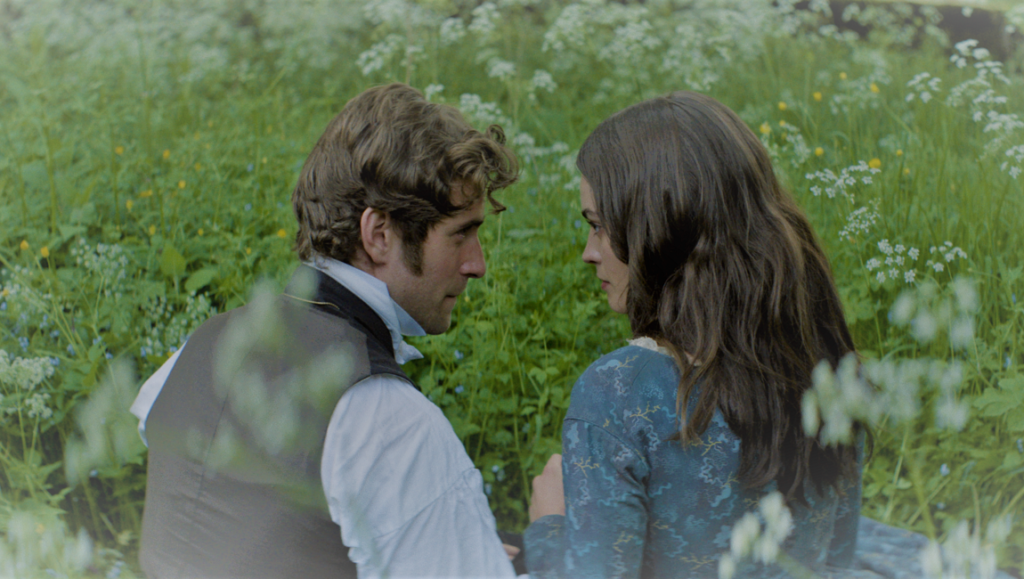If one thing can be said for the award-winning, box office-safe, well-worn road of the biopic, it’s that with the volume of films being made, at least directors are starting to get innovative with the form. With Emily, actress Frances O’Connor (making her writing and directing debut) embraces the lack of her heroine’s biographical detail and uses it to her advantage, taking the bare bones of what is known about Emily Brontë’s short life as a starting point for a gothic imagining of the Wuthering Heights writer’s relationship with her family and her first (and only) romantic love. Instead of following the typical biopic beats, however, O’Connor’s creative freedom manifests as something slightly more chaotic, forgoing fact in favor of an emotional honesty that feels entirely earned, and lends itself to O’Connor’s central conception of Brontë’s life as a short one lived with vibrant intensity.
With historical veracity a non-issue, O’Connor is able to branch out from the usual limitations of the biopic trope. Instead of feeling compelled to find ways to make the very act of writing (a notably solitary pursuit) cinematic, O’Connor makes her film entirely about the character herself rather than her craft. She assumes familiarity with Wuthering Heights, but by no means requires it, sparing her audience any knowing winks and nods to the novel, and focusing instead on a narrative that feels far more true to her imagined version of the author. Even more, Emily manages to sidestep some of the aesthetic conventions of its genre, leaning instead into horror and the distinctly gothic in one unsettling, mask-heavy sequence — one which O’Connor orchestrates in such a way as to provide a clear guide for other directors on how best to subvert the current-day biopic’s overwhelming staleness.
Emily is also a film that features uniformly satisfying performances. But even so, Emma Mackey and Oliver Jackson-Cohen are a cut above. The former manages to animate Emily with an almost animalistic skittishness that lends her moments of stillness a deeply unnerving quality, and she remains grounded even in the film’s instances of romantic melodrama. Jackson-Cohen’s performance, which is largely centered around that very romantic melodrama, is an oddly brave one, avoiding falling into the role of yet another handsome bodice-ripper in favor of far more complex, less easily digestible character work. As local curate William Weightman, Jackson-Cohen perfectly marries the pathetic and disdainful with something genuinely magnetic, conjuring up a romantic lead who feels entirely synchronous with both Emily the character and Emily the movie, meeting Mackey halfway while never outshining her. O’Connor’s film finds success in balance, and the result of her consistently surprising approach is a pleasantly subversive work of sideways biography.
Published as part of InRO Weekly — Volume 1, Issue 7.


Comments are closed.